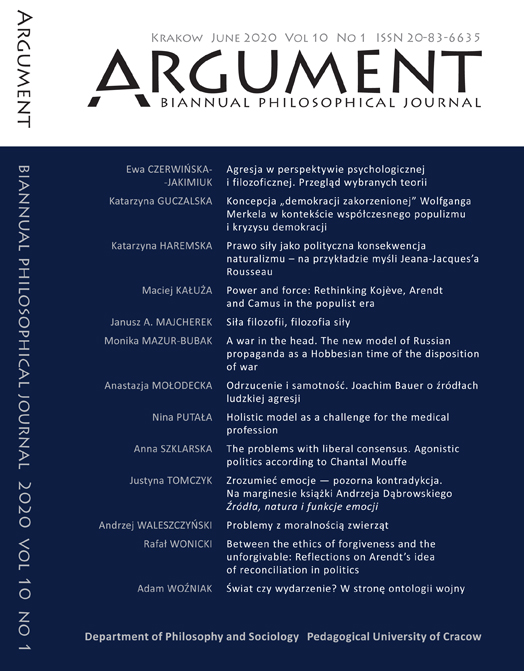Prawo siły jako polityczna konsekwencja naturalizmu — na przykładzie myśli Jeana-Jacques’a Rousseau
DOI:
https://doi.org/10.24917/20841043.10.1.5Słowa kluczowe:
domination, democracy, egalitarianism, social forms, criticism of civilization, Enlightenment, physis, sophists, thymosAbstrakt
The law of force as a political consequence of naturalism: on the example of Jean-Jacques Rousseau: Jean‐Jacques Rousseau rejected the Enlightenment ideas of reason, equality and progress. He experienced the charm of physical vigour and male causative power. He preached the apotheosis of primal instincts and the cult of strength. Rousseau’s historiosophy disavowed the optimistic vision of the Enlightenment and became its main competitor. The philosopher questioned the existing civilization; on its debris he wanted to restore the natural order based on biologically conditioned inequalities.


